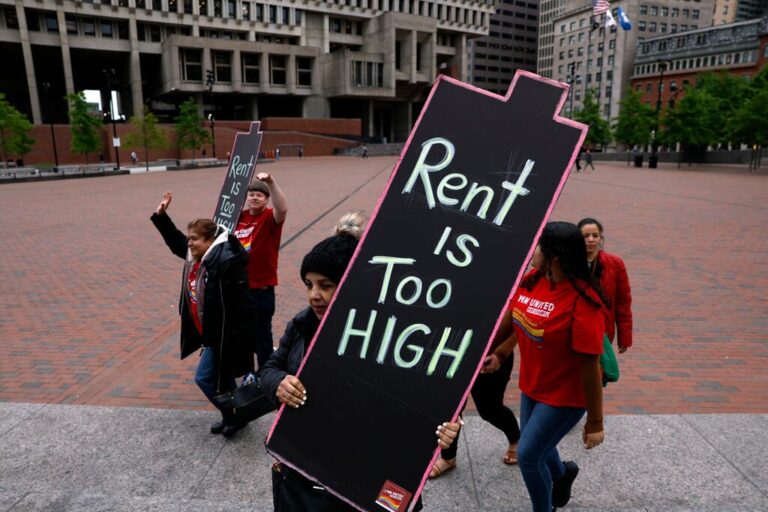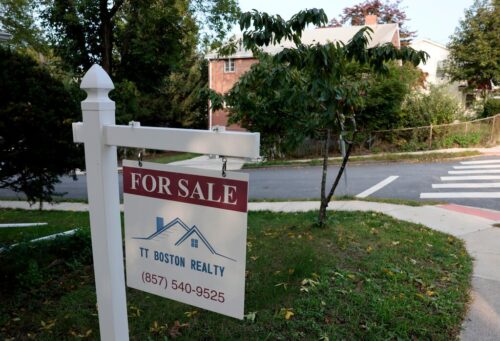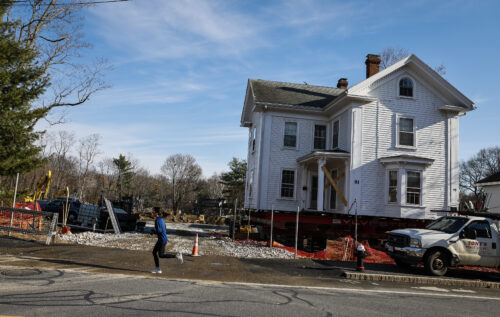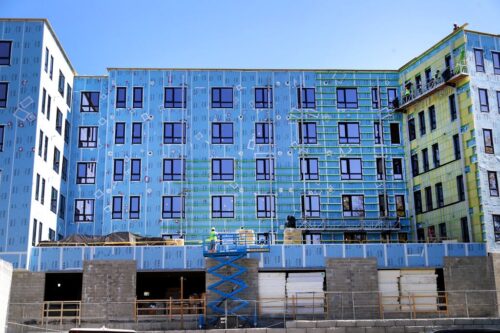The Boston Housing Authority last week asked landlords who rent to Section 8 voucher holders, about 18,000 of the city’s poorest households, to avoid raising rents this year as federal funding for housing assistance programs begins to dry up.
Section 8 landlords in Boston received letters from the BHA formally requesting they keep their rents level as part of “cost-saving measures” the housing authority is undertaking in anticipation of budget deficits. When Section 8 landlords raise their rents, those costs are passed on to the BHA, not tenants.
The letters are just a request. The BHA cannot prevent landlords from raising rents within the federal government’s standards. They are also a warning of pain to come, advocates say, as the Trump administration reassesses Section 8 and other housing assistance programs.
In the short term, the BHA is expected to be in a budget shortfall this year due to a lack of federal funding for expensive housing assistance programs and is seeking to cut costs. Longer term, the Trump administration is proposing massive cuts to the program that stand to fundamentally alter Boston’s housing ecosystem and could displace thousands of low-income families.
“We’re sending this letter because we are concerned about the short-term deficit we may be looking at in a few months, and because we’re worried about the long-term outlook for Section 8,” said BHA administrator Kenzie Bok. “If we’re in a budget crisis at level funding, what in the world does it look like, and how many people suffer, under massive federal cuts?”
Section 8, which provides rental vouchers to lower-income families, seniors, and people with disabilities, is the nation’s largest housing assistance program. In Boston, the housing authority distributes 18,000 vouchers, and the waitlist can stretch longer than a decade.
Protesters call for affordable housing: ‘We need the state to act’
The federal government allocates vouchers to municipalities and other distributing agencies, who in turn distribute them to tenants to rent market-rate apartments. Voucher holders pay no more than 30 percent of their income in monthly rent, with the local housing authority covering the rest of the cost with federal funds.
Acceptable rents are set through a formula set by the Department of Housing and Urban Development, with limitations on how much landlords can raise the rent in a year based on the local housing market. Those rates are often less than what landlords would make renting to market-rate tenants, and so many seek to raise rents when HUD allows.
“You’re losing money on the units you’re doing Section 8, at least compared to market rate,” said Ed Kelly, a landlord with apartments in Boston and on the South Shore who rents some units in Dorchester to voucher holders. “Doing the program is a lot of work with all of the extra inspections the government requires. You kind of have to raise the rents to make it work.”
Kelly said he would hold off on raising rents this year on the Section 8 units because the money he makes on the market-rate apartments is enough to sustain his business but said that other Section 8 landlords may not be able to do the same.
Stantec
Rising rents are ultimately responsible for BHA’s budget deficit, Bok said.
When market rents rise, so do Section 8 rents, but the federal government has in recent years kept funding for the program at roughly the same level. That’s a reason why it is fairly common for the BHA and other housing authorities to end fiscal years in shortfall. Typically, they will try to cut some costs to make up as much of the gap as possible, and at the end of the year, HUD will draw on other untapped funds to fill the rest.
Bok is concerned that extra funding will not be available this year, and HUD has directed BHA to come up with ways to cover the anticipated shortfall.
But the bigger concern, Bok said, is a scenario in which the Trump administration’s proposed cuts to the program become reality.
In its budget plan filed earlier this month, the administration called for slashing housing assistance spending by roughly 43 percent and replacing federal programs like Section 8 with block grants for states to distribute aid themselves.
Those cuts would be “catastrophic” for tenants and the broader housing ecosystem in Boston, said Michael Kane, a longtime local housing advocate who is also the co-chair of the national Leaders and Organizers for Tenant Empowerment Network, cutting a program that many already consider underfunded.
“Millions of people would be displaced,” Kane said. “People would be homeless. It would be utter chaos.”
Under the proposed cuts, the BHA would have to cancel vouchers for some 7,900 families, including nearly 11,000 children.
Cuts would also make it harder to finance affordable housing projects, which sometimes have their own allotment of Section 8 vouchers that effectively guarantee a portion of the rent will be paid, making it easier to take out loans to finance construction.
What’s the rent where you live? Check out the Globe’s rent tracker.
The BHA has some 4,000 of these “project-based vouchers,” which support roughly $600 million of debt in real estate portfolios across the city. The federal cuts could impact those projects and buildings, too.
Still, the biggest impact would be human, said Kelly, the landlord.
While he agrees that Section 8 has its flaws — Kelly said he has had problematic tenants who have abused the program — he has seen many more families who lived in his apartments with a voucher use it to steady their lives. One single mother he rented to, he said, recently bought a home for herself and her children.
“Some people just need help,” Kelly said. “To take this program away or to cut it like they’re talking about would be putting people on the street.”
Danielle Parhizkaran/Globe Staff




Comment count: